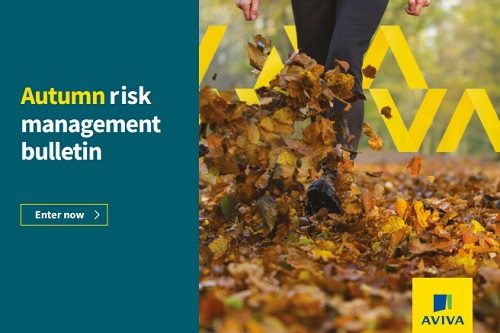Aviva publishes Autumn Risk Management Guide for businesses

Authored by Aviva
After the long, hot summer we’ve had in the UK this year, many of us will be welcoming the cooler autumn days ahead. With the obvious added pressures that businesses face in the coming months – the cost of living and energy crisis, rising inflation, the knock-on effects this has on supply chains and the increasing risk of underinsurance – it’s going to be a bumpy road ahead. That’s why an effective reassessment of your clients’ risk management strategy is incredibly important this year.
The shift in seasons always presents a change to the risk landscape for your clients, so to help we’ve updated our Autumn Risk Management Guide which covers some of the key issues to be aware of at this time of year. From dangerous driving conditions to vulnerable road users and slips and trips, it clearly defines what to look out for and outlines simple measures that can be taken to help protect your people and safeguard your clients.
As seasons change, the challenges on the road do too. Autumn brings fallen leaves, colder weather, rain, lower sun, frosts and longer periods of darkness which can all impact driver performance and contribute to an increase in road traffic collisions. The potential impact on property is most obvious in considering autumn conditions, but it’s essential to fully assess these risks and prepare for any adverse weather including storms or floods that could cause severe disruption.
Slips and trips also need to be considered as they’re a common cause of injuries at work – wet weather and damp autumn leaves can increase the risks further, both inside and outside a premises. Injuries such as these affect the individual involved but also can mean business losses through claims, employee absence and bad publicity. Equipment too can be overlooked, it’s important to make sure it’s safe and ready for use as always, but don’t just rely on a statutory inspection regime – consider for example how much your clients’ rely on their boiler in the winter months. It’s essential to properly maintain this type of equipment, especially before the winter period.





